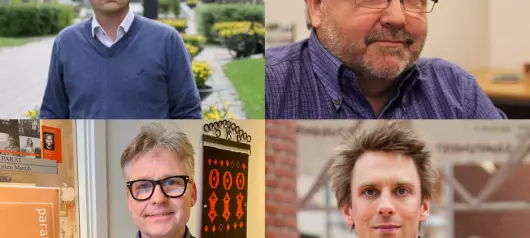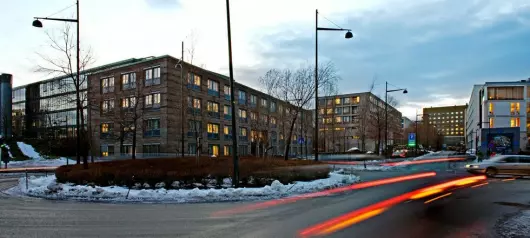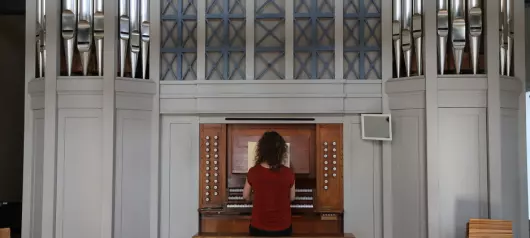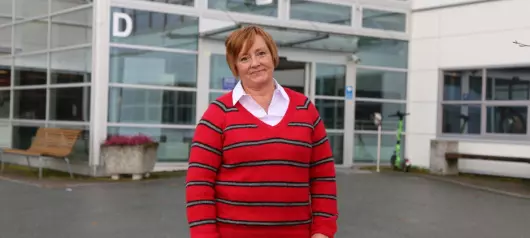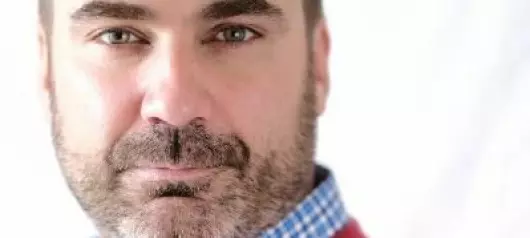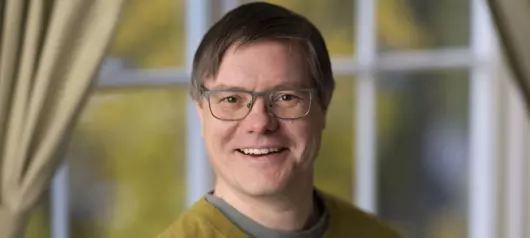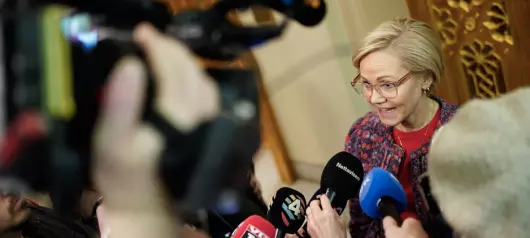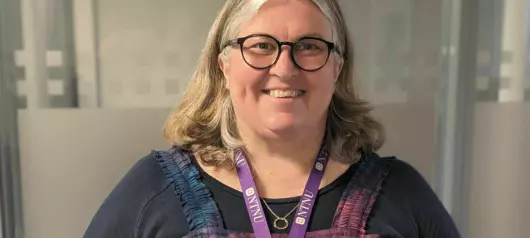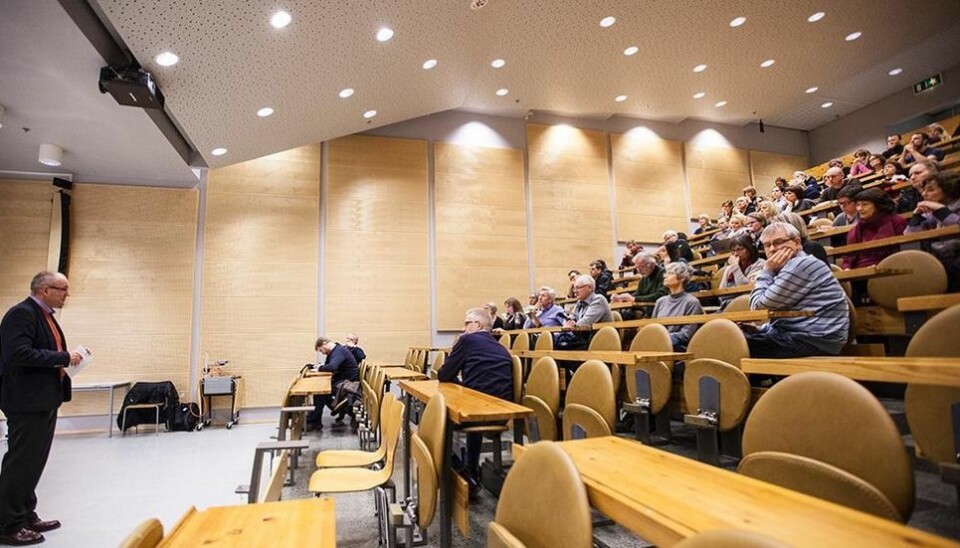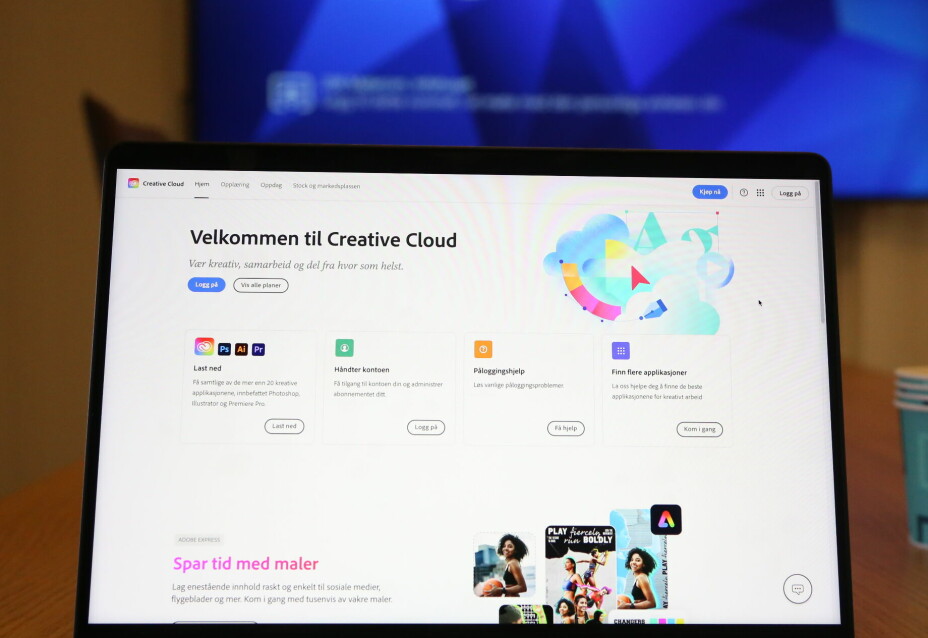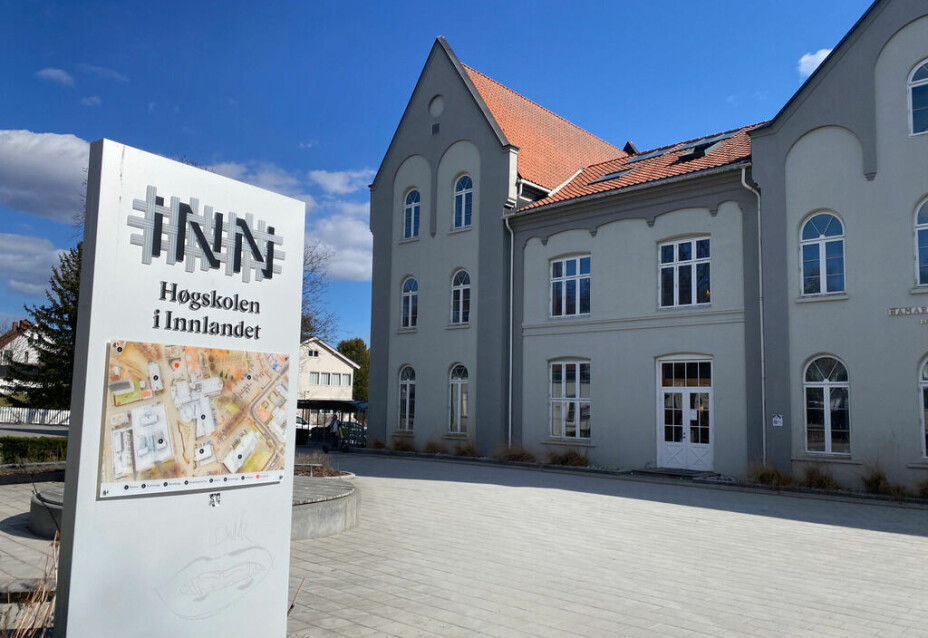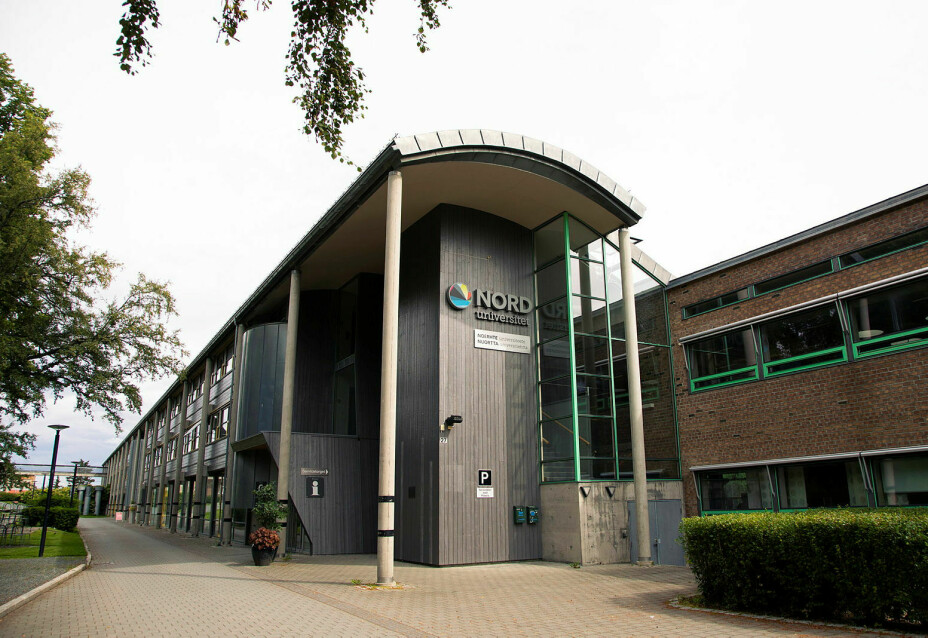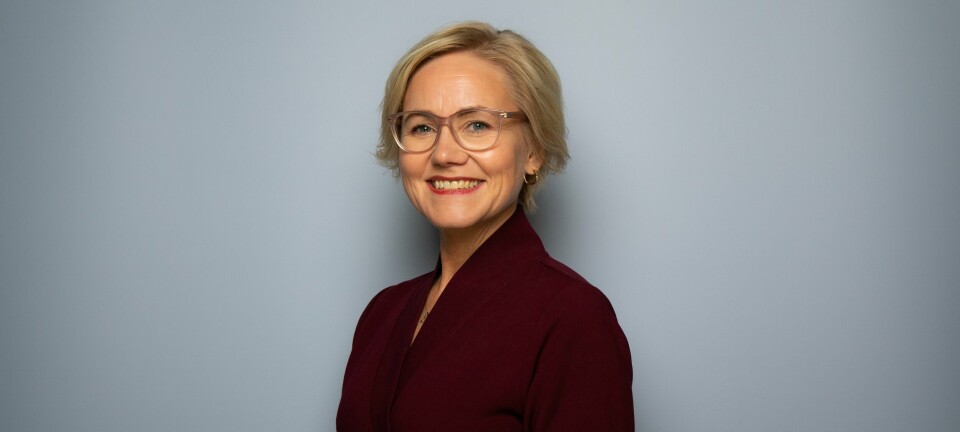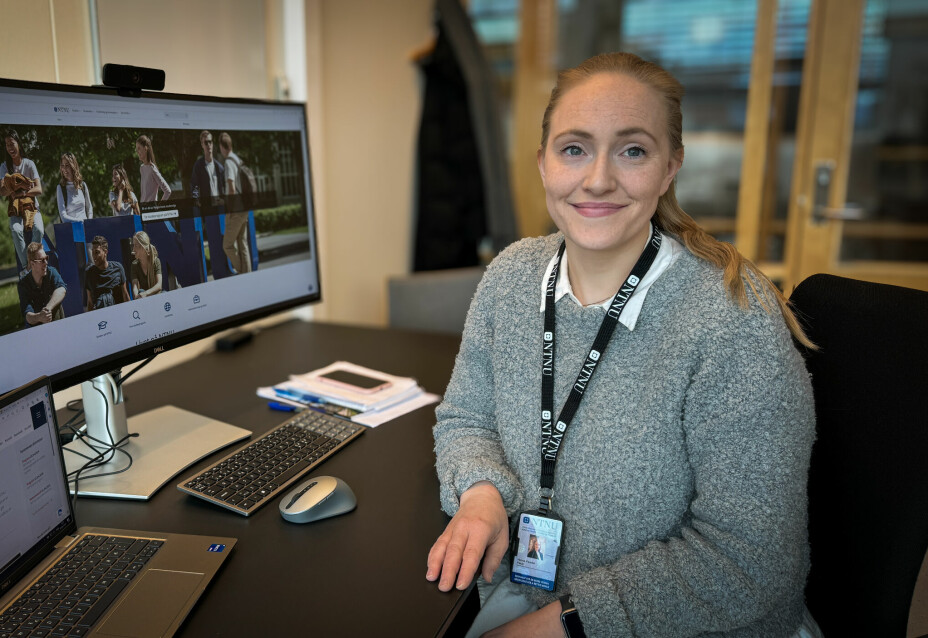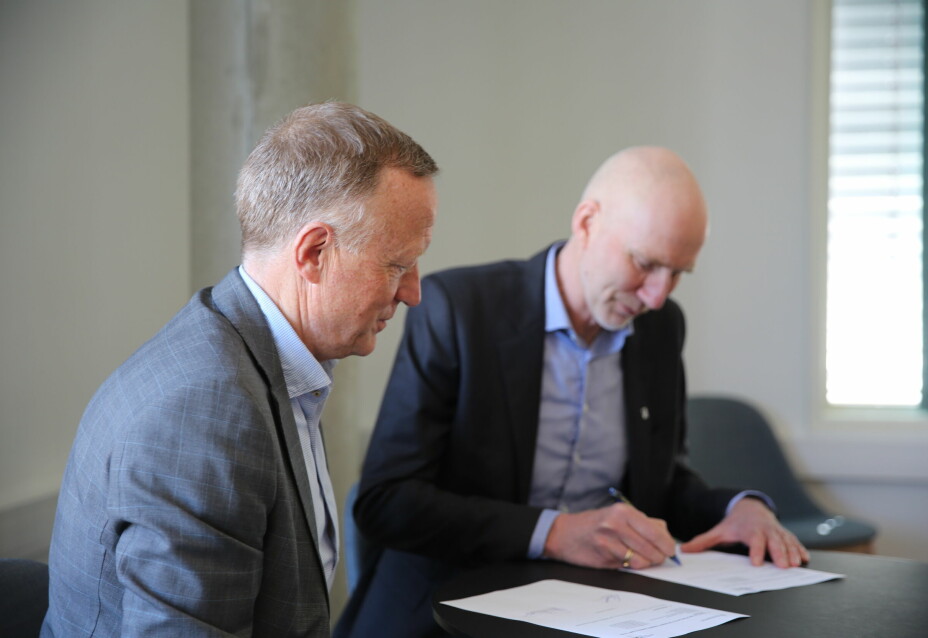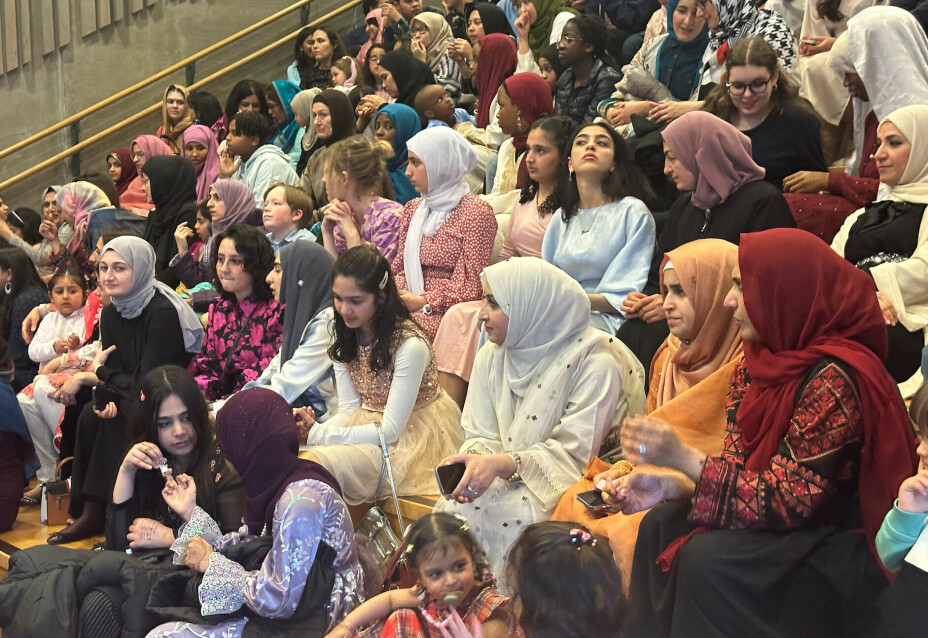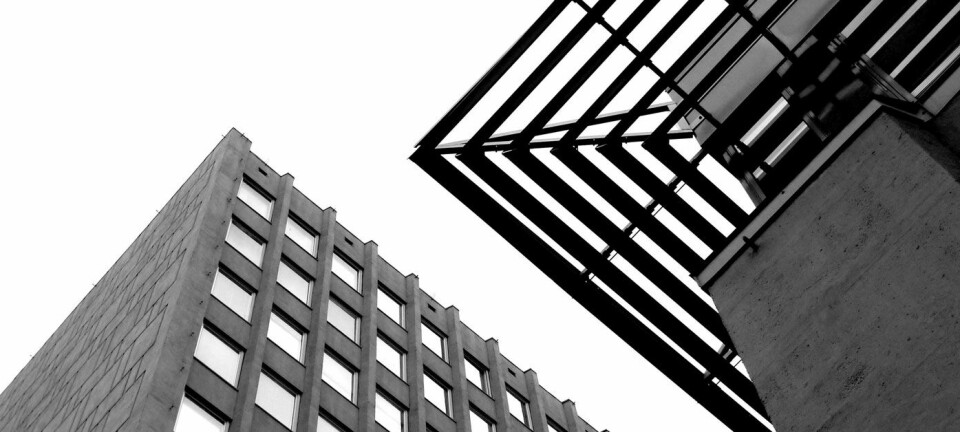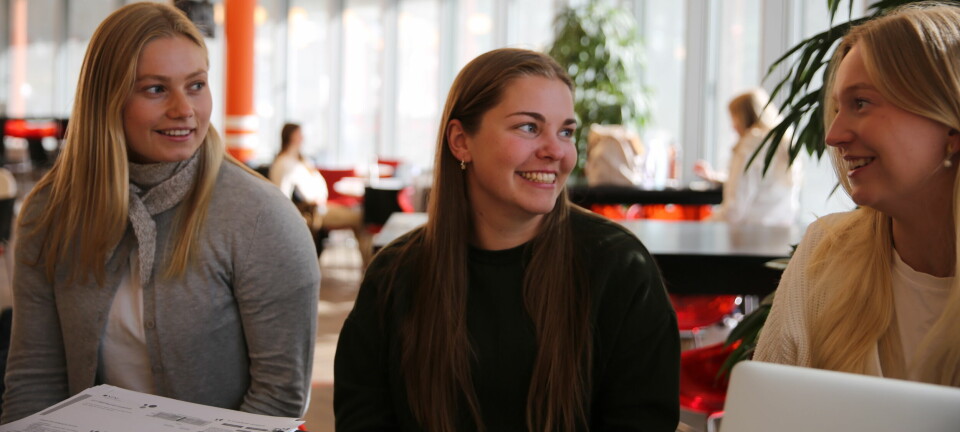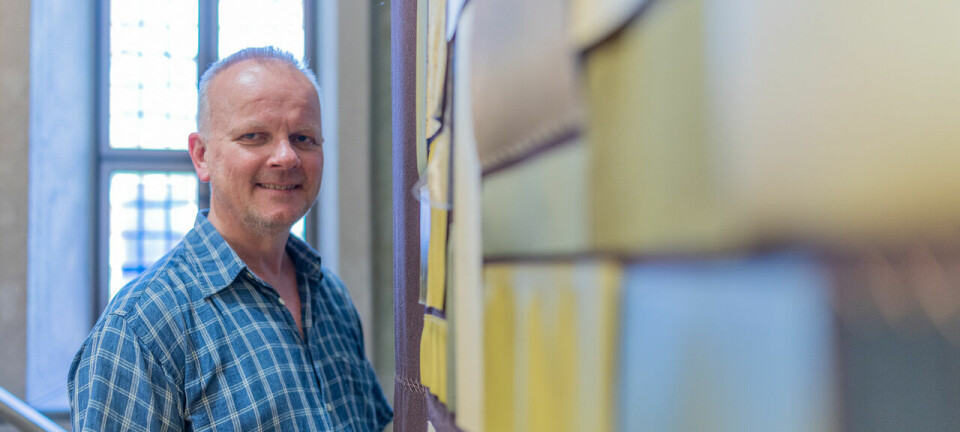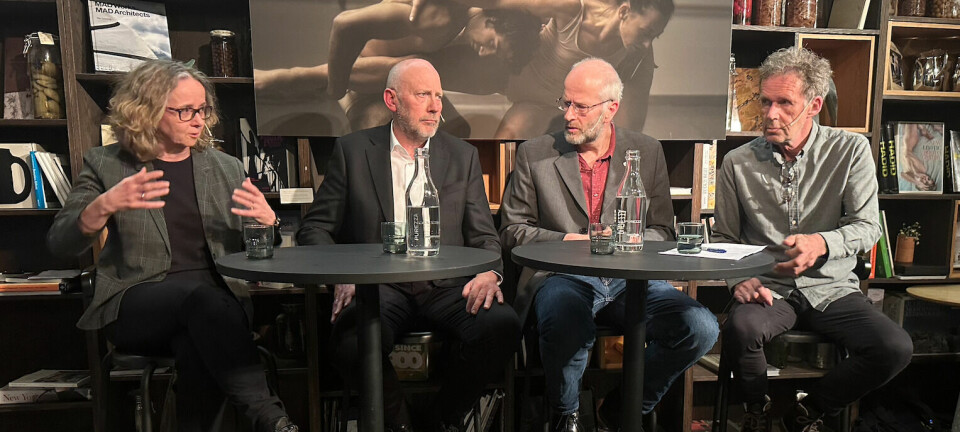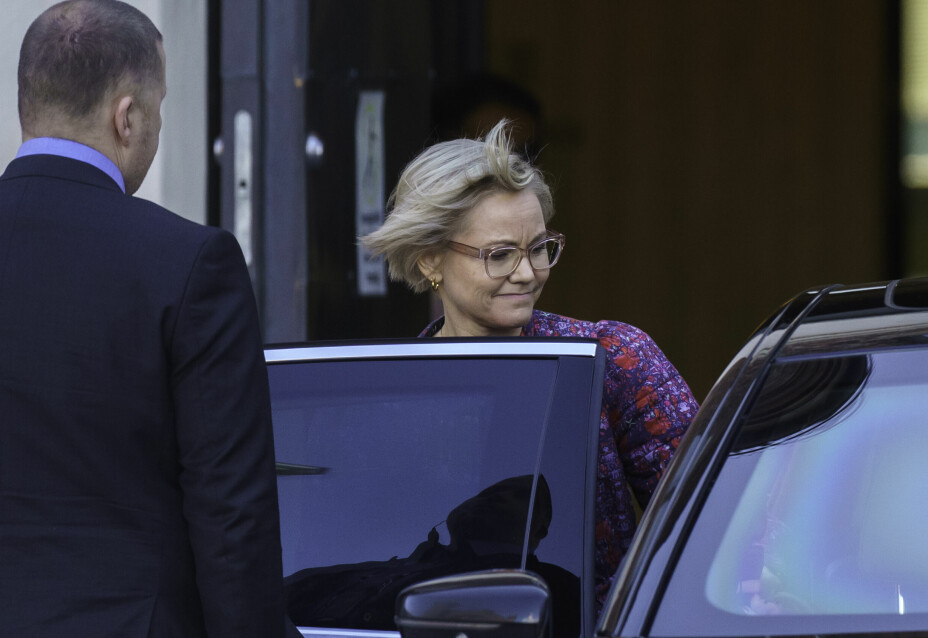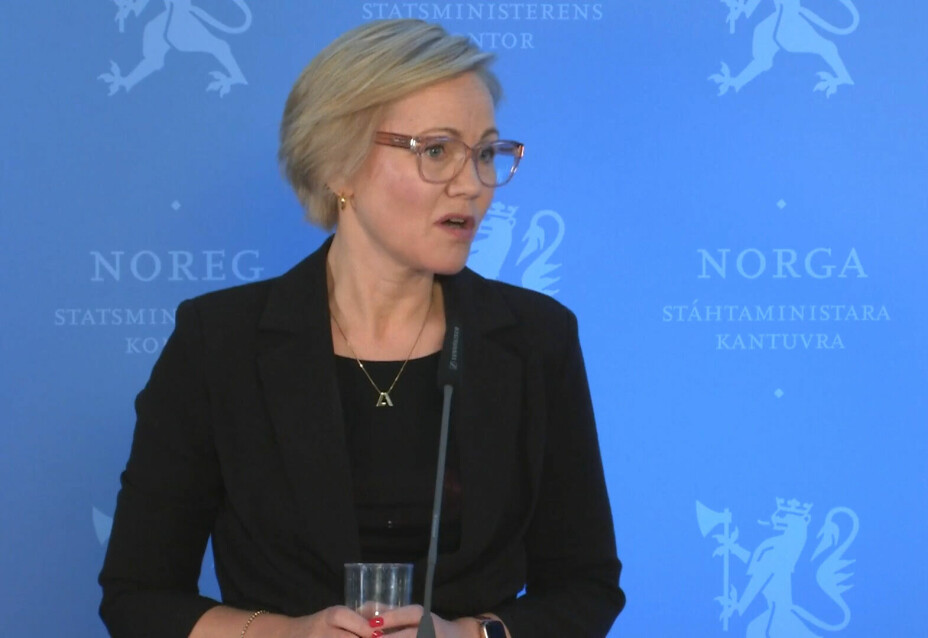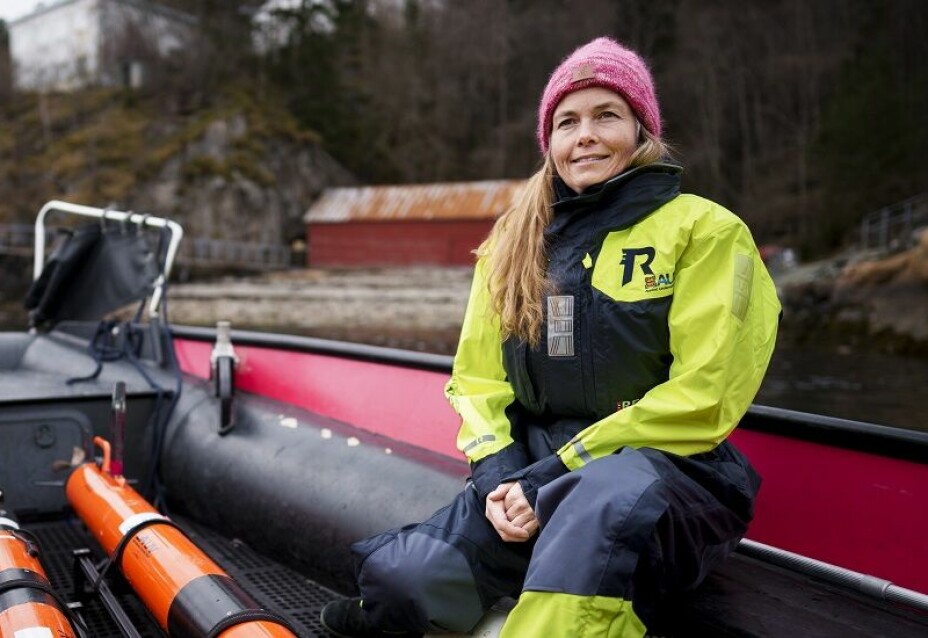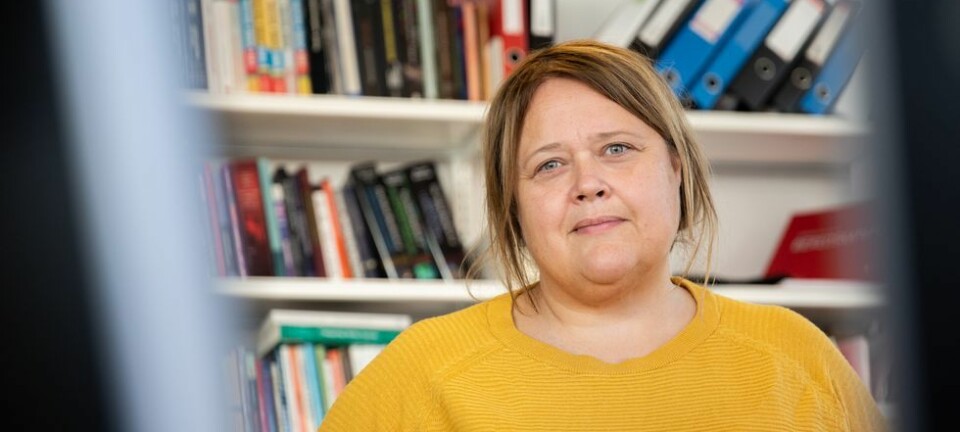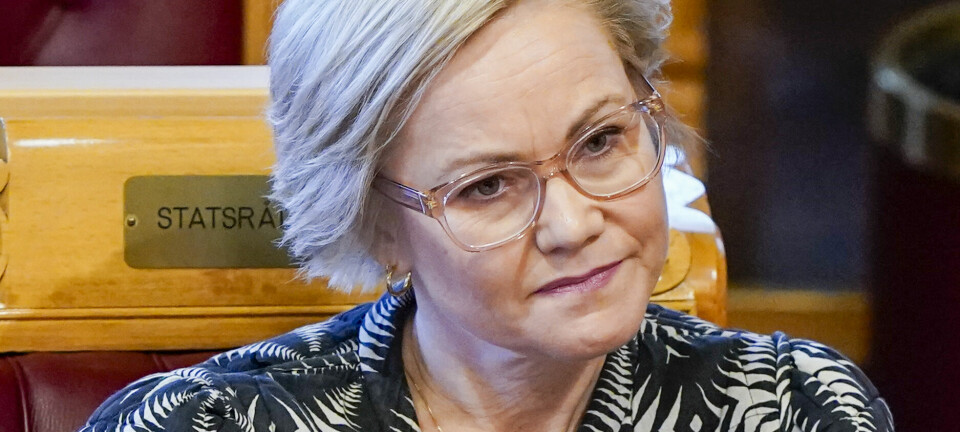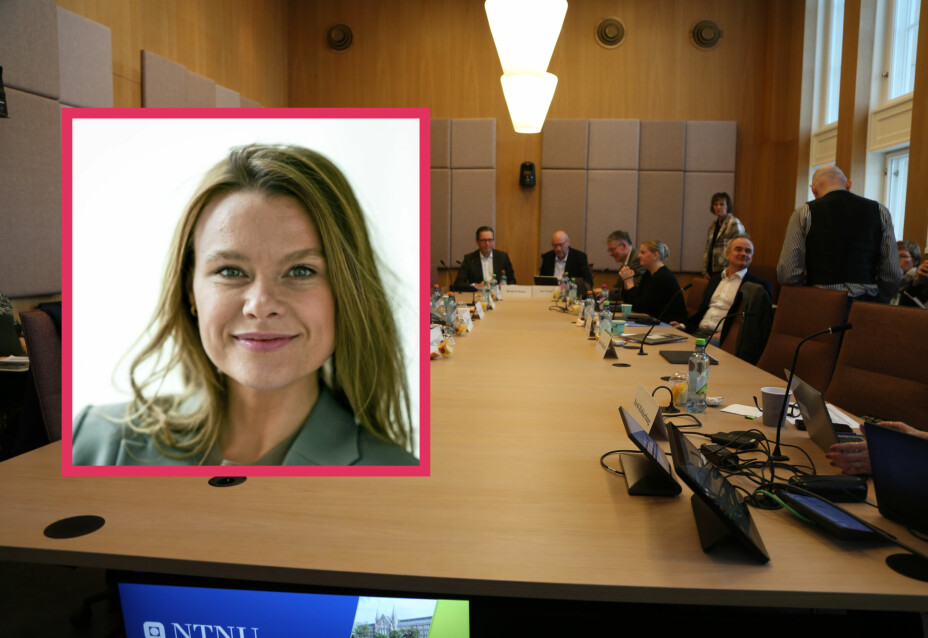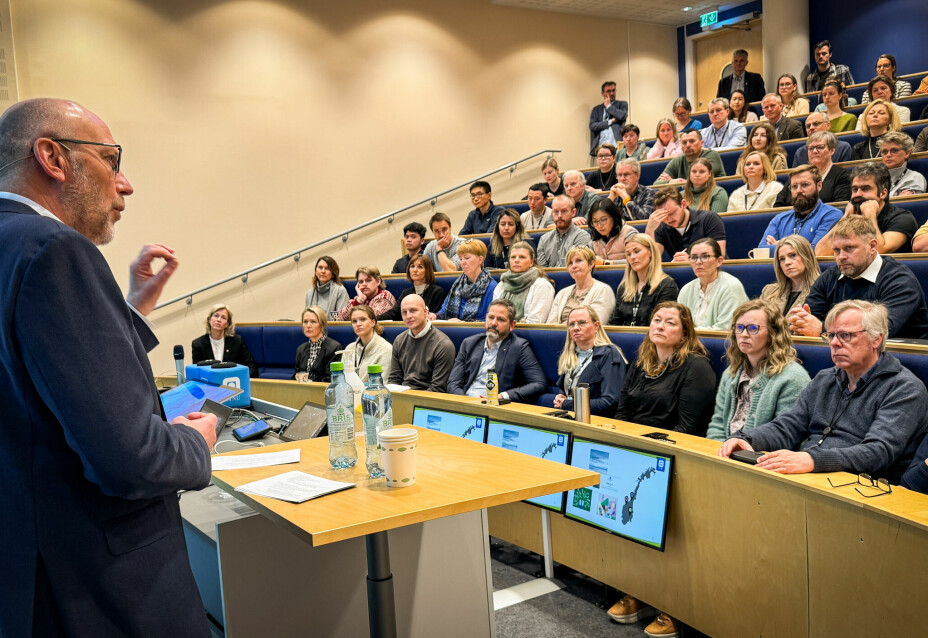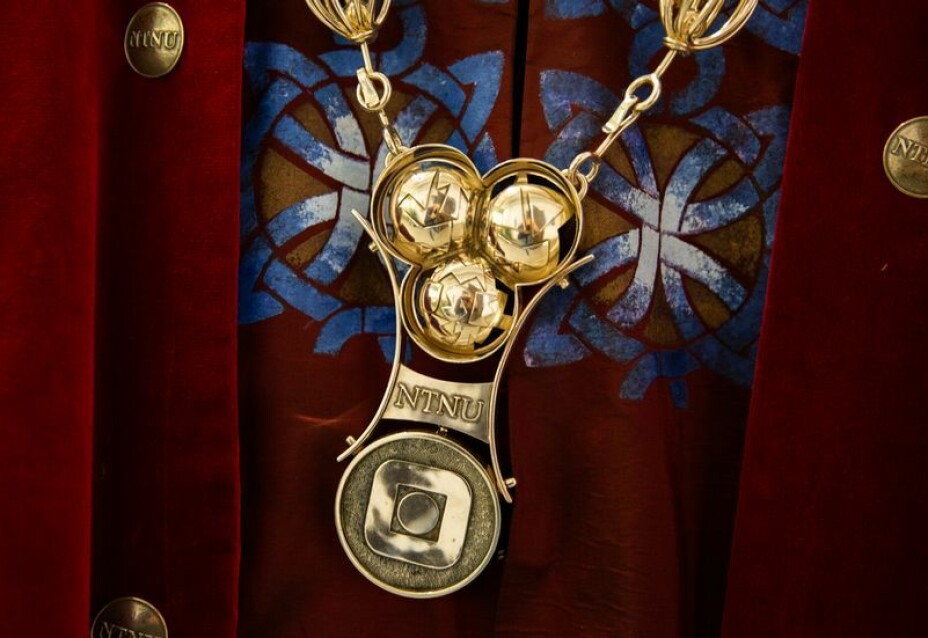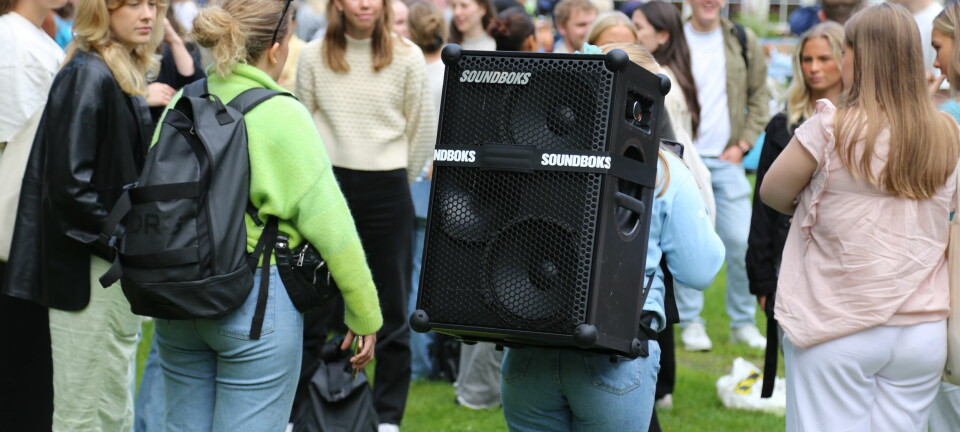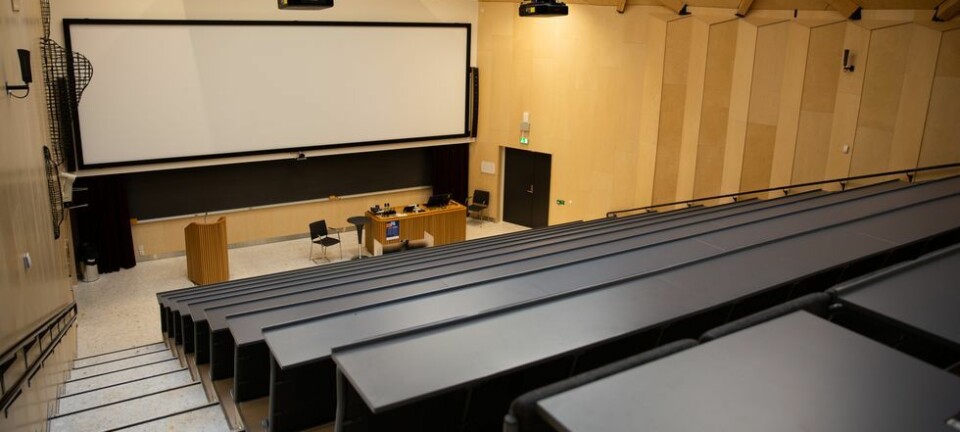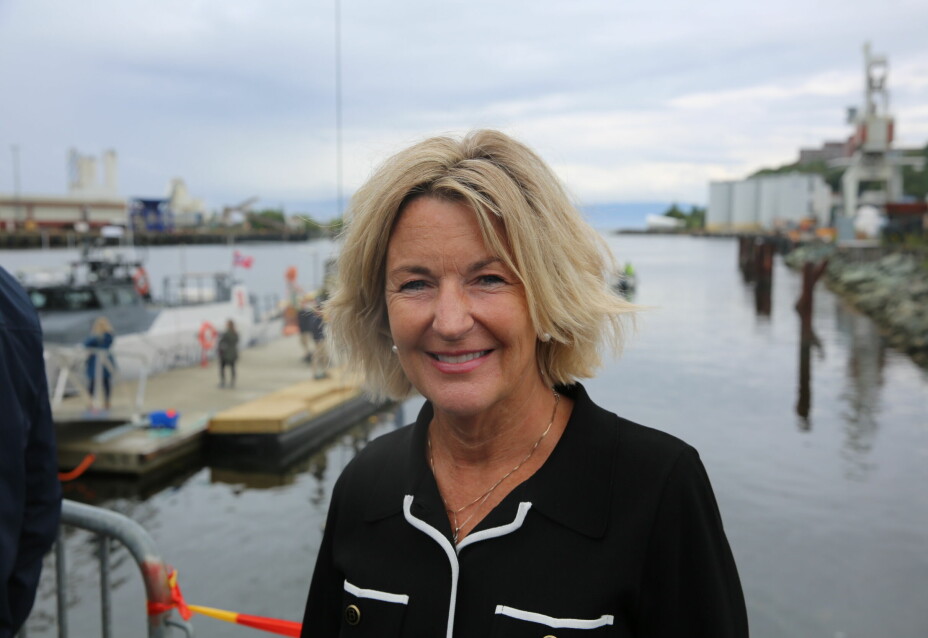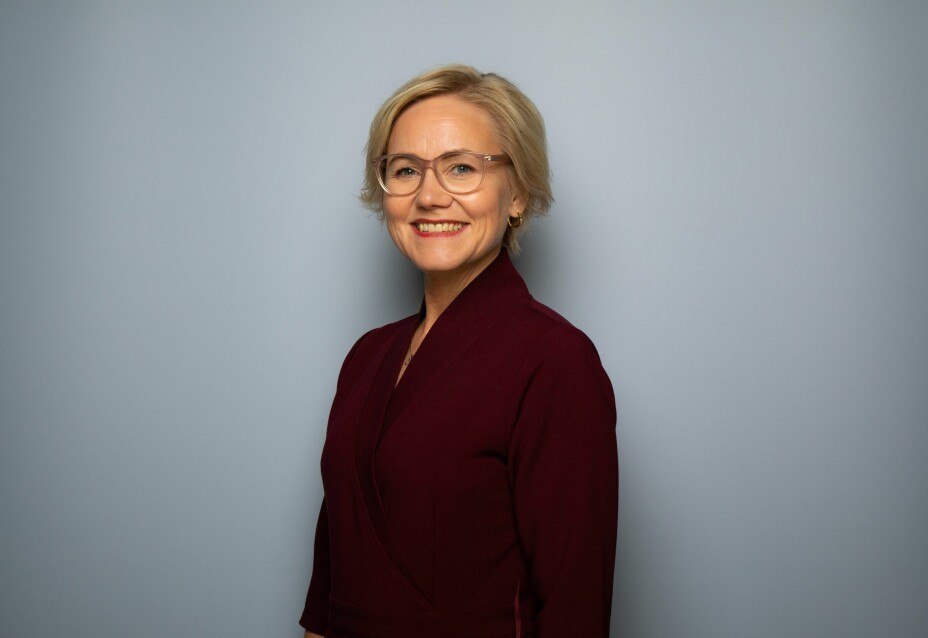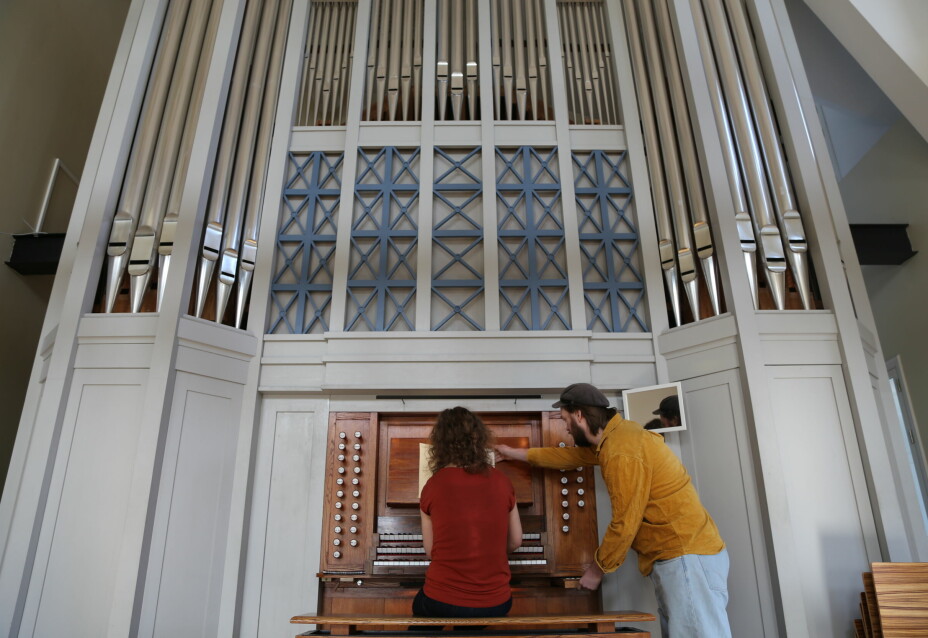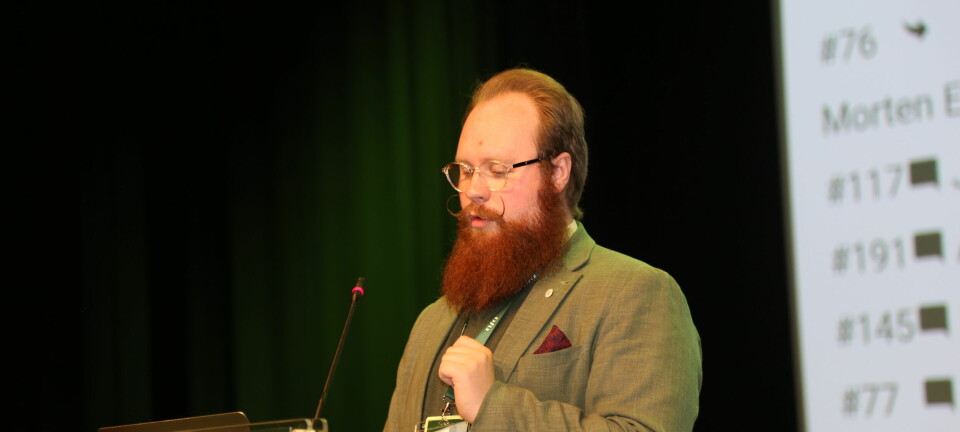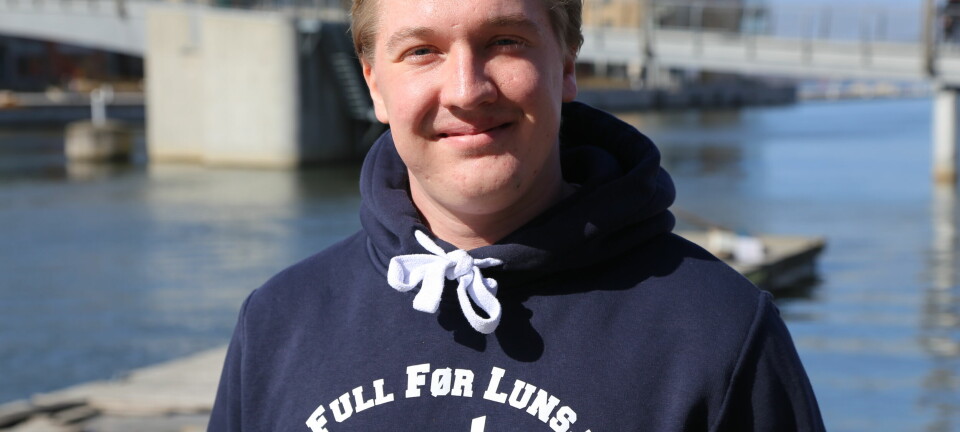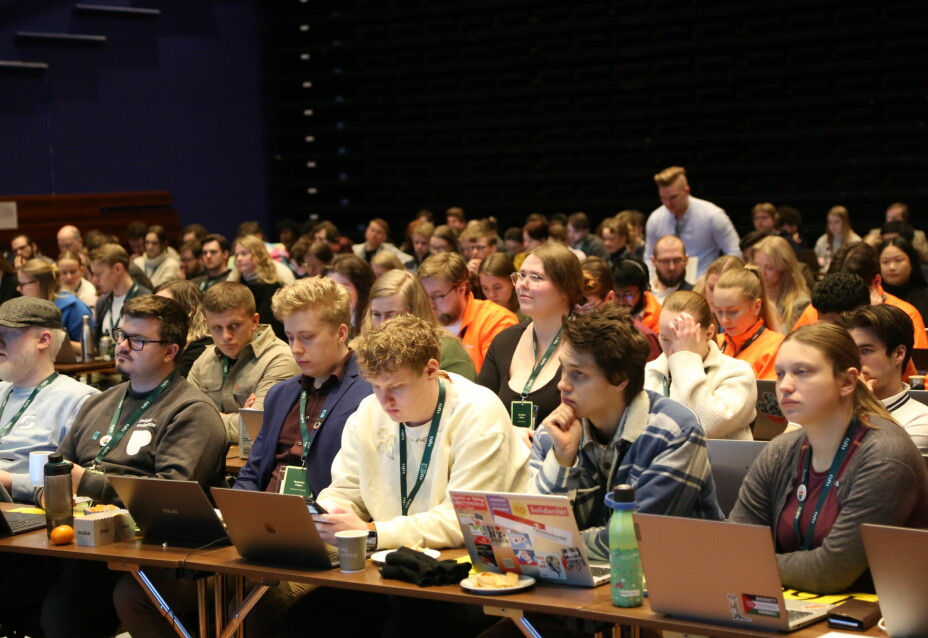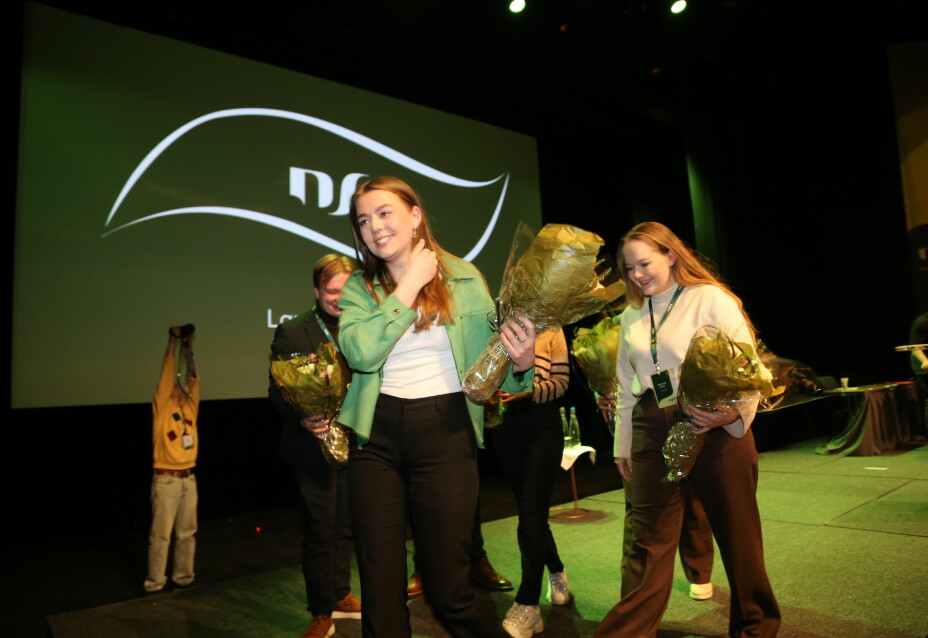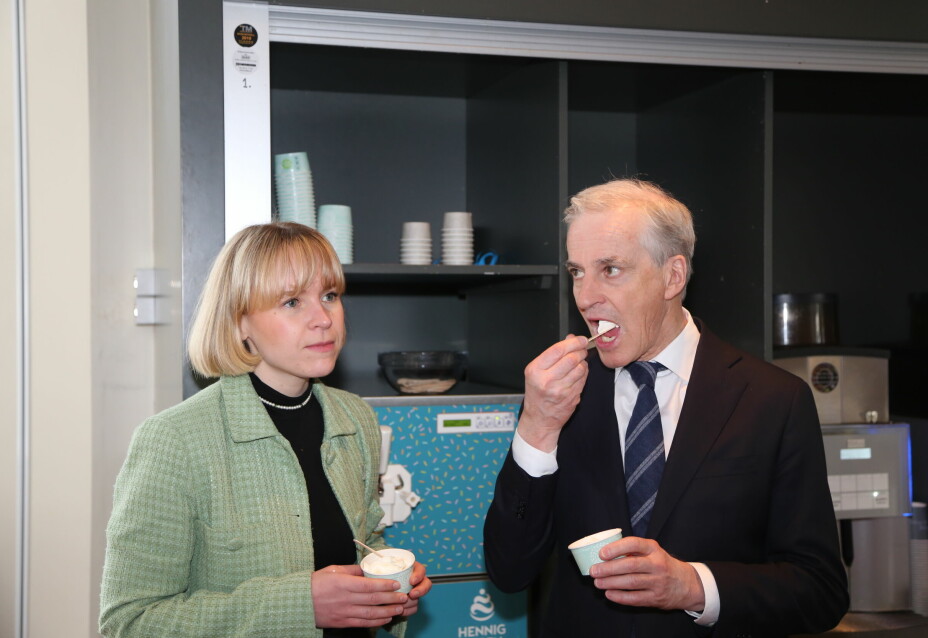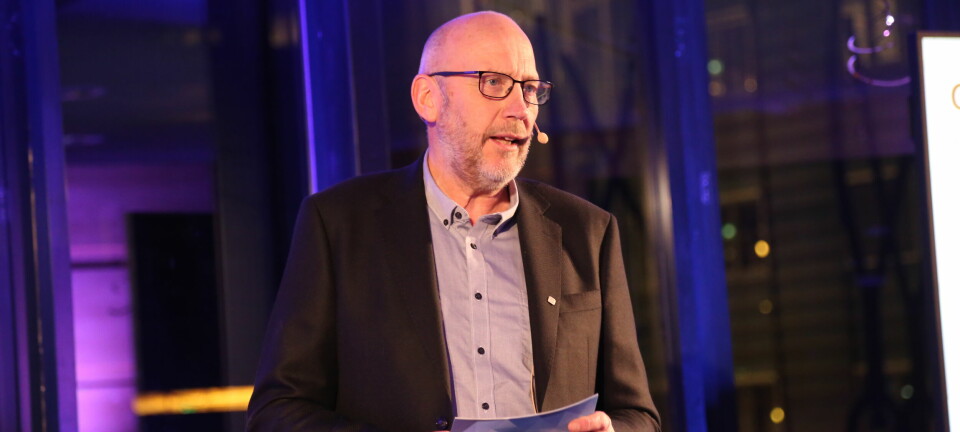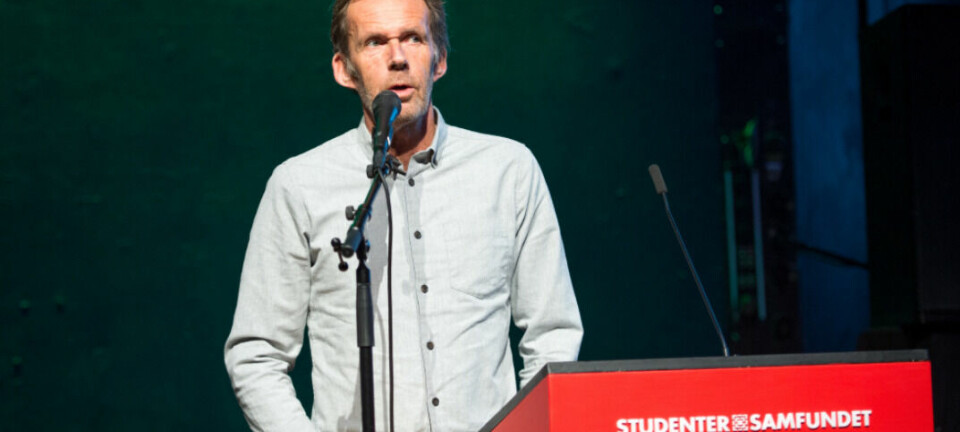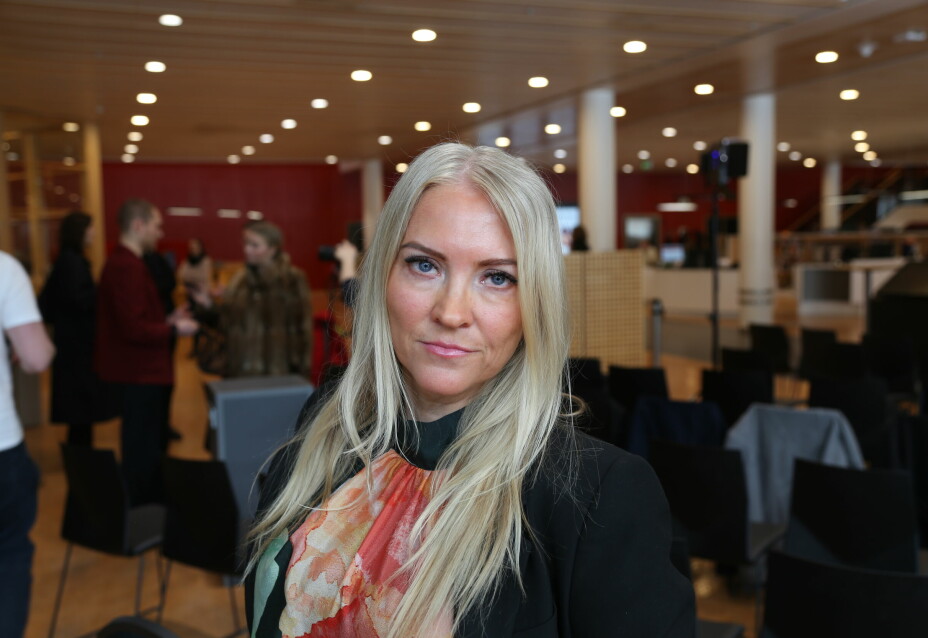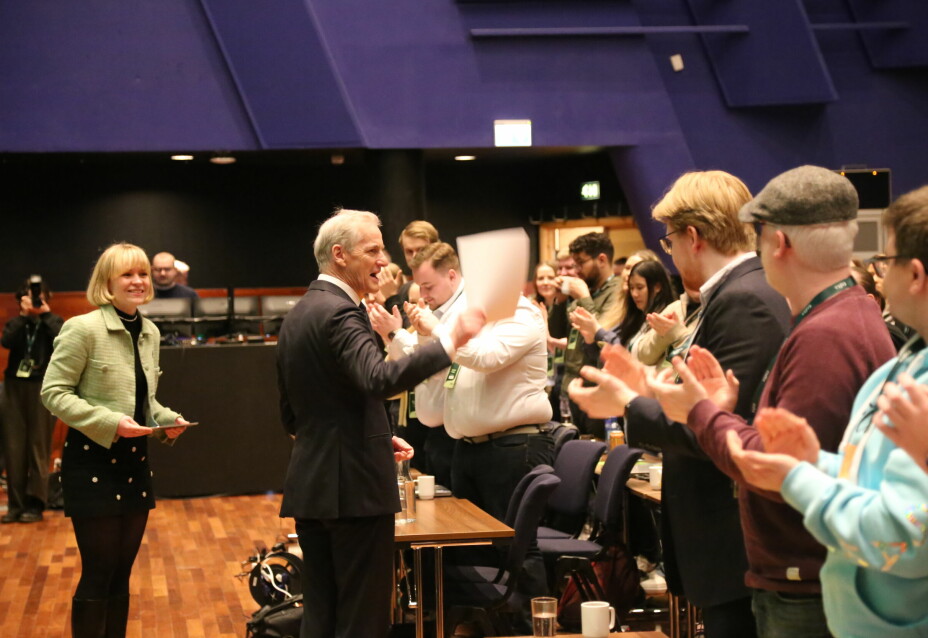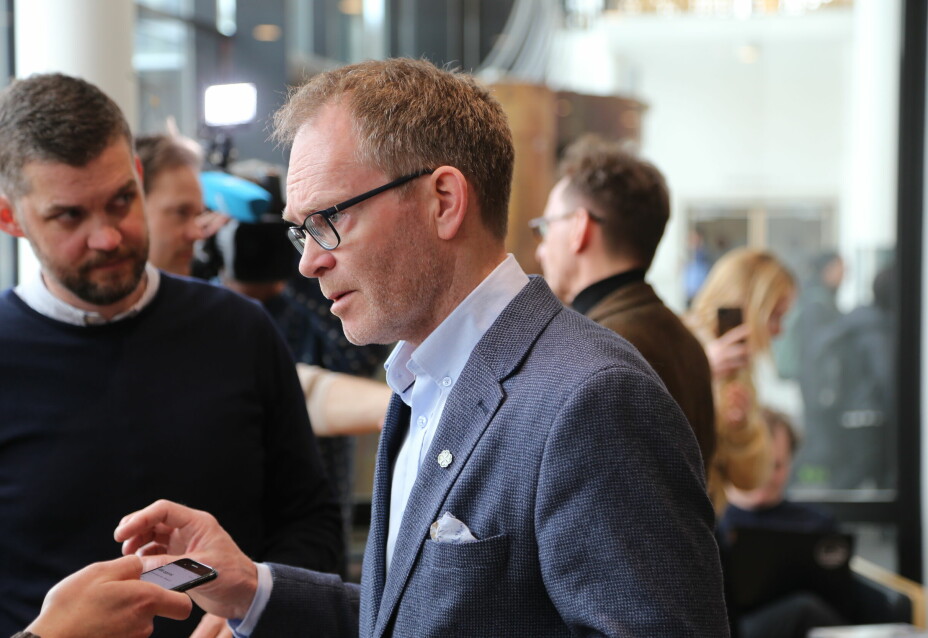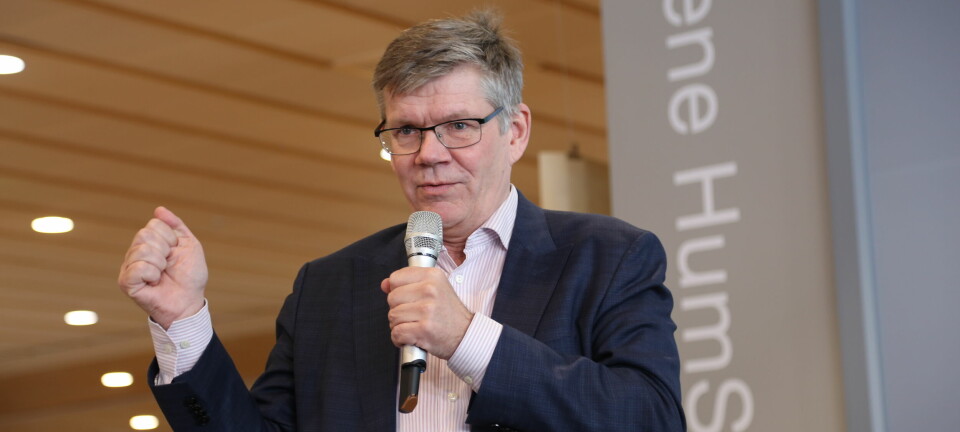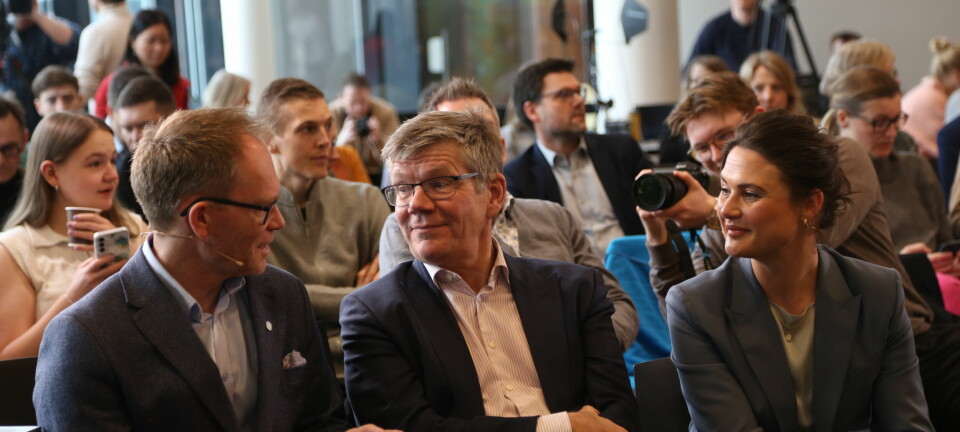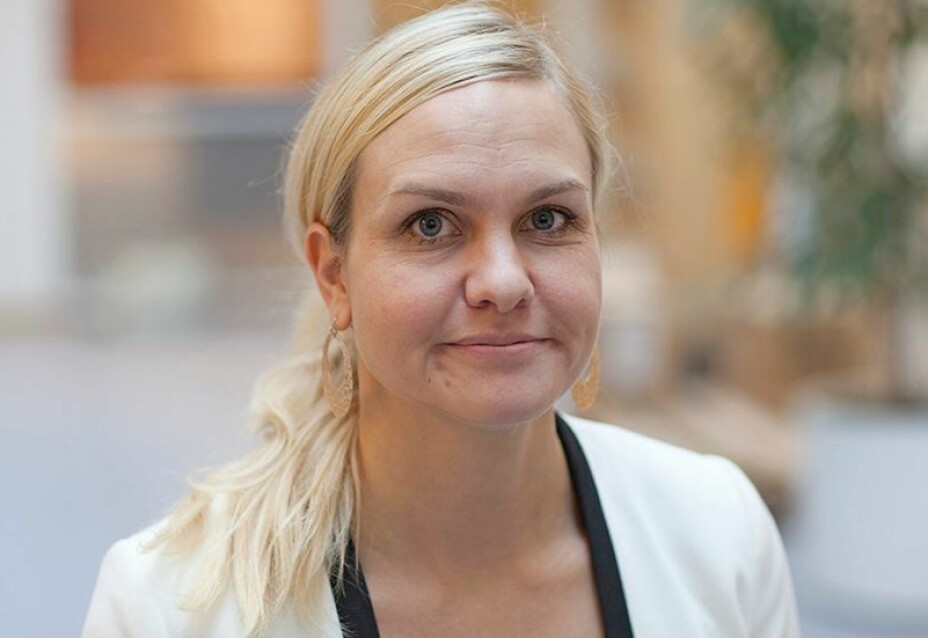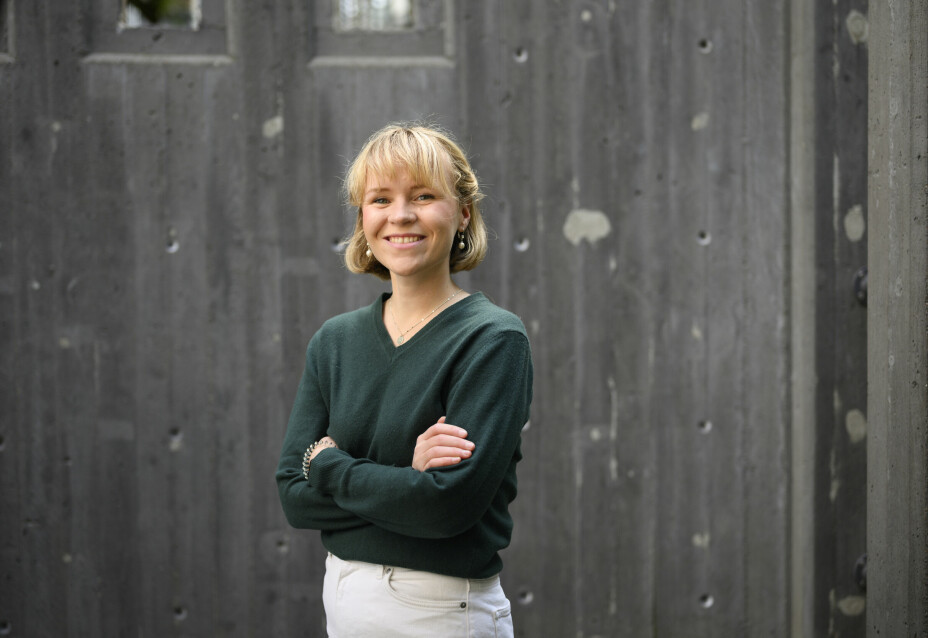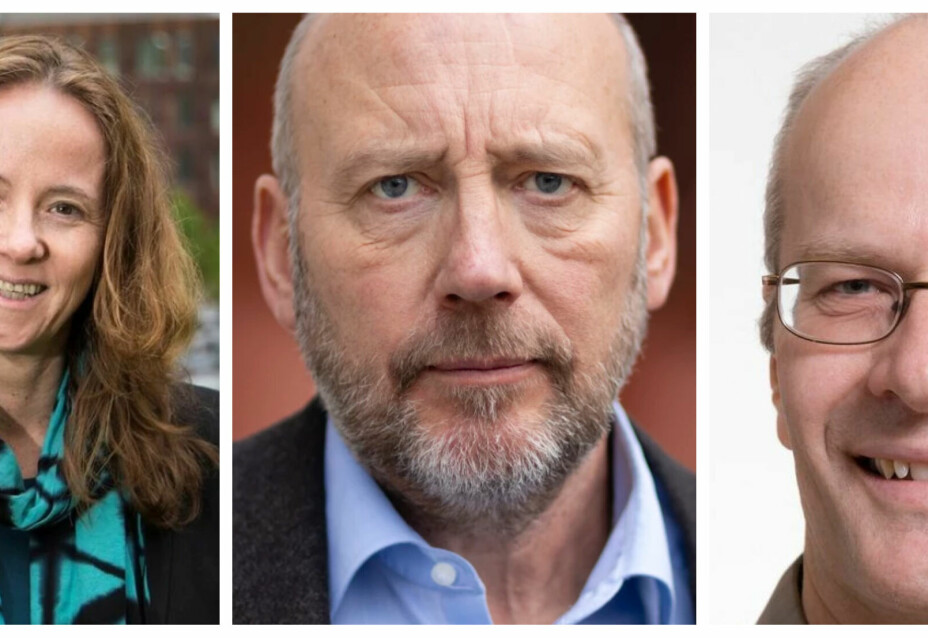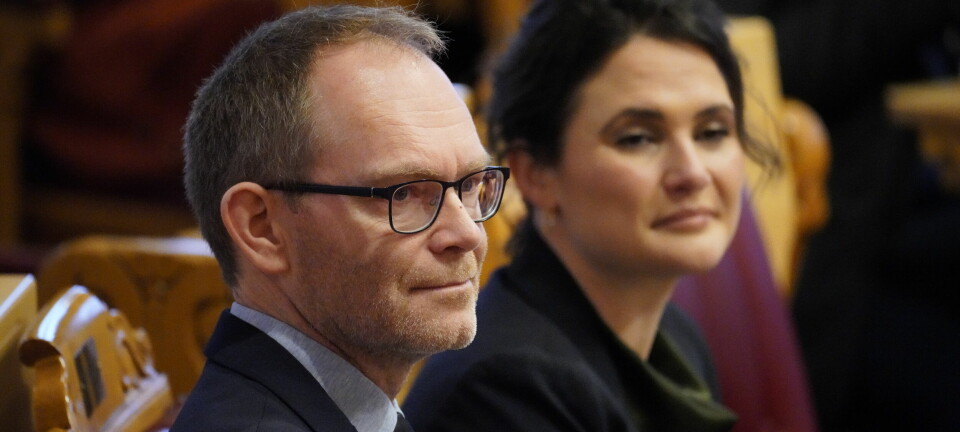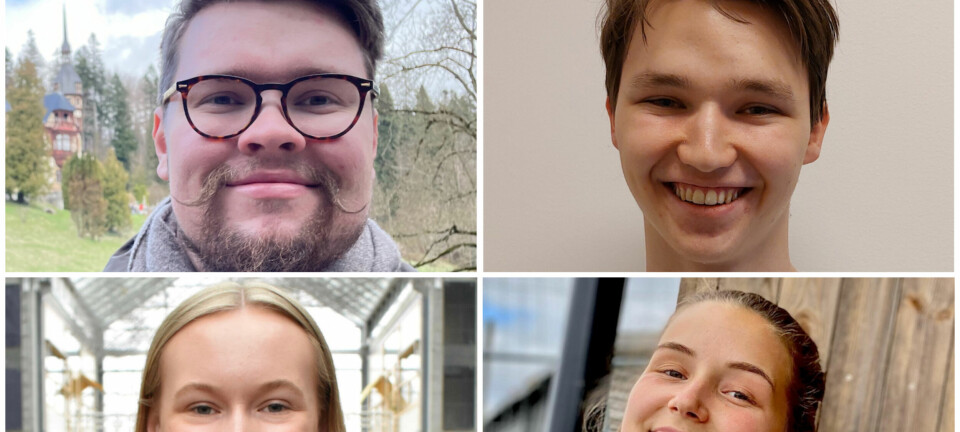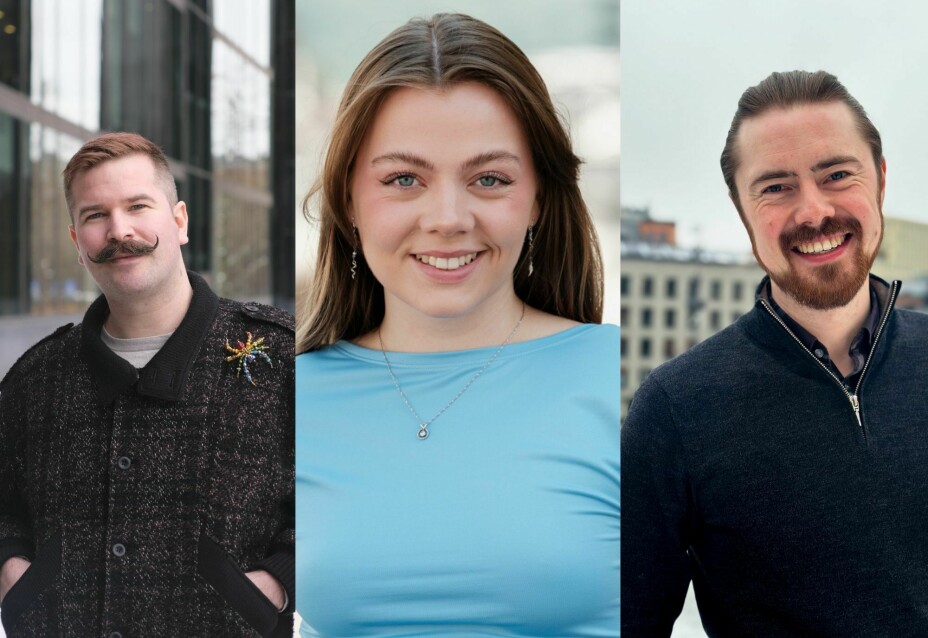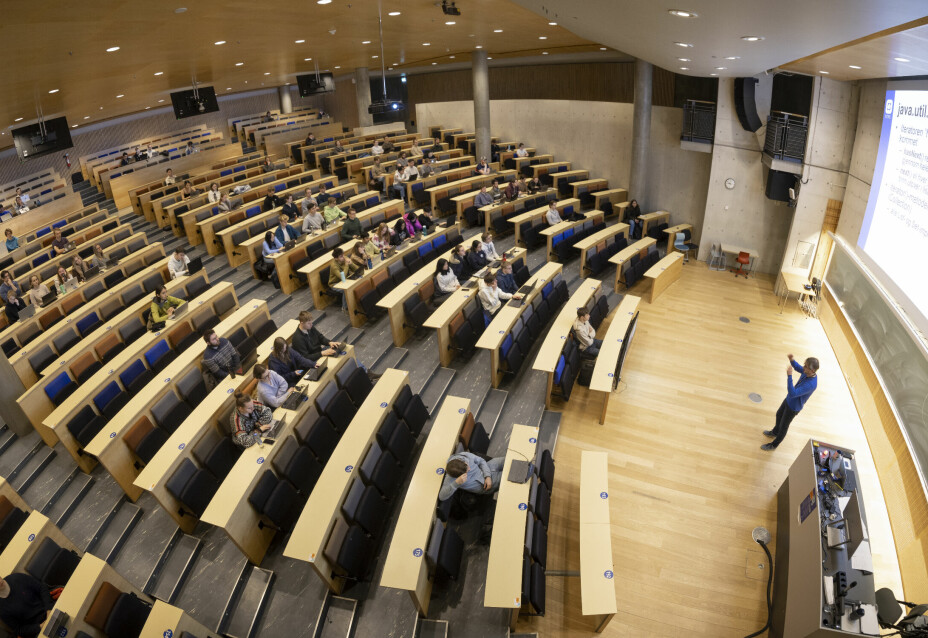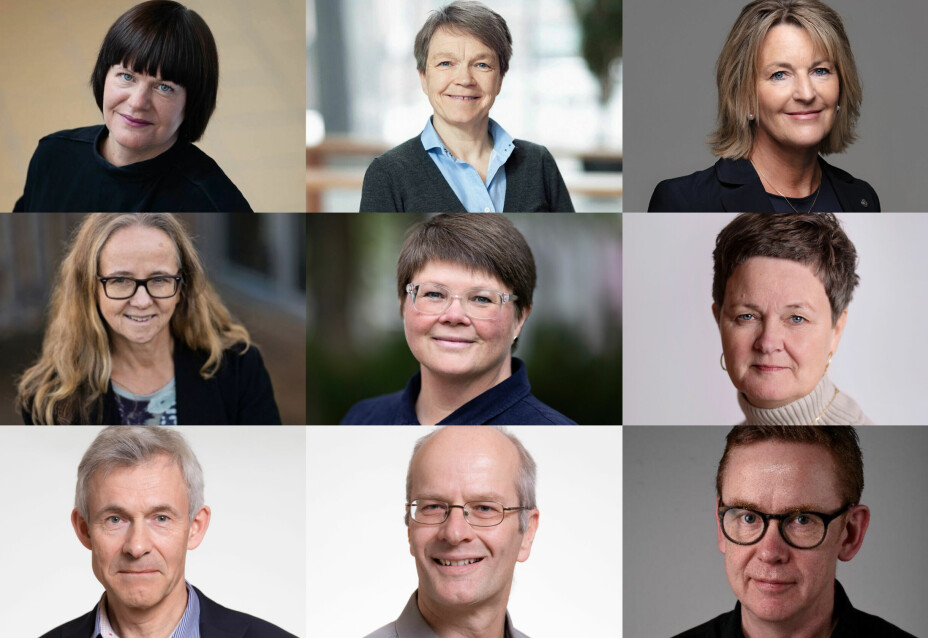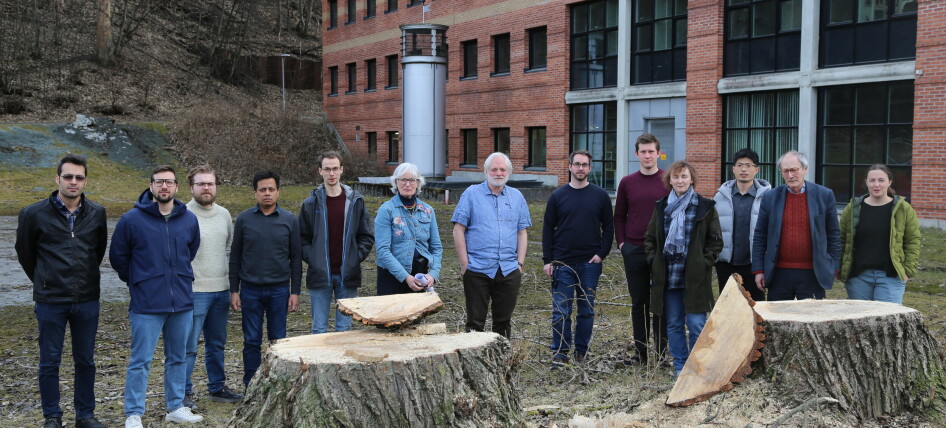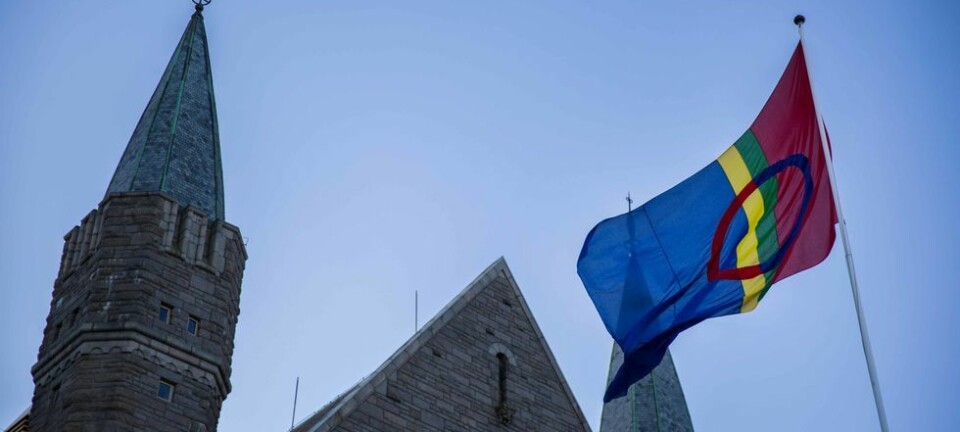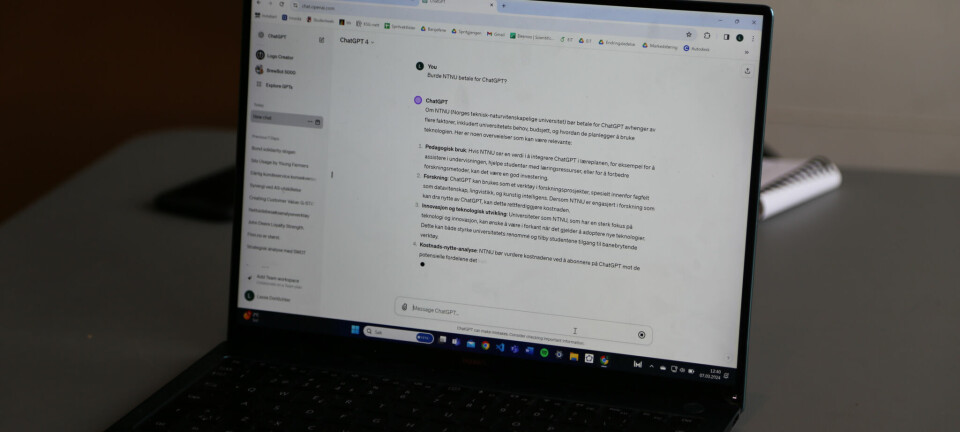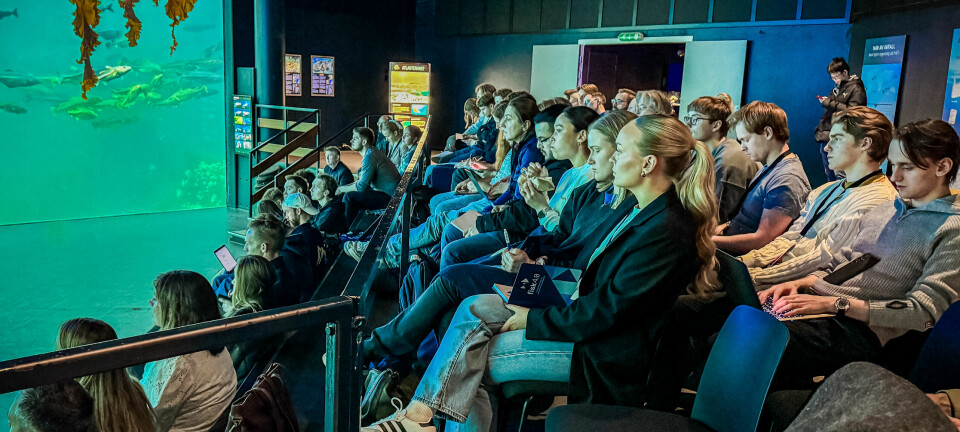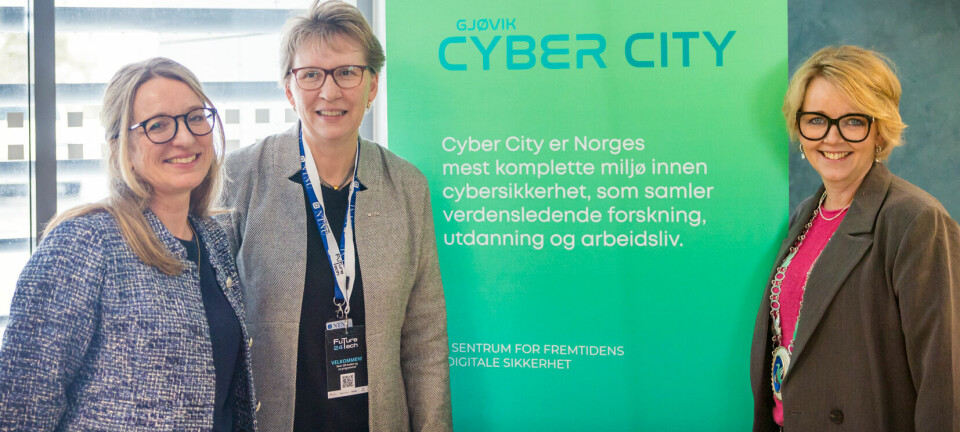"A flawed process of employee consultation"
"Robust what? A comment on departmental mergers and the weakening of university democracy."
Jacobsen, Andresen, Refstie and Marsland: "While rector Gunnar Bovim and the SVT faculty highlight participation as a fundamental aspect of the processes going on at NTNU, our experience is that “participation” is being used to legitimize an agenda and decisions that have already been made." (ill.photo from the campus meetings where Bovim explained the process to university employees.
Kristoffer Furberg
The recent SAKS process is not the only process of mergers currently underway at NTNU. At the Faculty of Social Sciences and Technology Management (SVT Faculty) the Dean has initiated a process of restructuring, arguing that merging a number of departments is necessary to make us more robust. Unfortunately, the process initiated has been based on wholly insufficient analysis of the current situation and has been accompanied by a flawed process of employee consultation. The process raises serious issues concerning the position of our academic disciplines and the future health of university democracy at NTNU. Despite inadequate consultations, a large number of employees at the faculty have taken steps to voice their criticism of the planned merger and to request – so far still absent – explanations for the proposed changes.
The Dean since chose to postpone the suggested fusion of ISS, GEO, SAN, and NOSEB until the new Faculty structure resulting from the SAKS process at NTNU is clarified. However, the faculty will continue working with a view to a future merger. We therefore believe it is important to highlight the failures made in the previous rounds as a reminder for what needs to be considered going forward.
A peculiar, backwards process
One area of concern relates to the narrative being pushed that mergers create ´robustness´ and thereby better quality in research and teaching. As stated by the leader of the Norwegian Association for Researchers, it seems that merging h as become a goal in itself.
Solutions are being proposed at NTNU without any kind of analysis of the existing quality of our work, and without taking into account experiences with departmental mergers elsewhere. On the contrary, the recent “Aasen Utvalget” report, commissioned by the faculty to propose restructuring models, emphasized that their mandate was not to evaluate the current situation or performance of our departments at the SVT faculty. Rather, they worked on the assumption that today´s departments are not adequate for meeting the challenges for higher education tomorrow. The process has therefore been notable for its peculiar backwards process of analysis, where one starts out with a solution and then begins to work on the justifications.
We argue that this does not only make for a flawed process, it also obstructs more productive discussions on how different departments can best contribute to NTNUs priorities and strategic thematic areas. Furthermore, no studies of the consequences of previous departmental mergers, whether concerning financial gains or losses, transactional gains or losses, consequences for research and curriculum development, or the consequences for the development of individual disciplines, have been presented. People questioning this process have been labelled “anxious” and “inflexible”. We hope to move beyond this typical labelling and have a broad discussion on the fundamental issues facing the faculty and individual departments.
About participation and “participation”
Our second concern is the non-participatory nature of the process. While rector Gunnar Bovim and the SVT faculty highlight participation as a fundamental aspect of the processes going on at NTNU, our experience is that “participation” is being used to legitimize an agenda and decisions that have already been made. The process has been conducted within very tight deadlines, where staff members have been asked to comment on a narrow set of alternatives. There has been no space to discuss the overall context or to question problematic assumptions these decisions are being based on.
The lack of participation and access to the discussion for employees who have not reached an adequate level of Norwegian is another serious concern. Remarkably, this is the first text you will read in English concerning the restructuring process. More than 40 % of PhD students at NTNU are not Norwegian; this also applies to more than a third of the academic staff, as well as more than 10 % of the students at NTNU (this link requires access to the Intranet). When all reports and public hearings are in Norwegian, a large number of people are effectively excluded from the process.
For those who have had access to the discussion, it has been disheartening to see how decisions have been made contrary to advice and feedback from employees. This was exemplified in the latest document sent down from the faculty leadership, which claimed to be “…based on the previous reports and participatory processes that have taken place (Note from the Dean 2015:2, own translation, emphases added)”. In this latest document employees were asked to comment on only one option for a new institute structure, the merger of ISS, GEO, SAN, and NOSEB into a single institute. This proposal corresponds to the most far-reaching model laid out in the Aasen report, and was not supported by employees in the first round of consultations.
The Latest Document sent from the Faculty leadership also failed to provide any clear justifications or arguments for why such radical changes are needed, and what the potential benefits of such a merger would be.
An undemocratic process
In addition to highlighting the undemocratic nature of the process, we would like to point out that merging social science departments into one large body sends out a signal that our disciplines are much the same. Engineering is not one single department, how and why should social sciences be? We are part of a university that prioritizes natural and technical sciences, and one of the arguments for merging departments within the Social Sciences Faculty is that we will stand stronger, and be more able to show our relevance.
The latest document from the faculty leadership reads “The Social Sciences must have their own influence [egentyngde] and value beyond that of contributing to interdisciplinarity in the main technical and natural sciences profile” (Note from the Dean 2015:8 [own translation]). Here, we point out that merging different fields into one signals the opposite and that our disciplines are interchangeable.
In addition, we hear from students and employers that they would like their degrees and employees to be as specialized as possible within a discipline. It is difficult to see how this is compatible with becoming a general social science institute.
Identity as branding
This can be illustrated through the case of Geography. The particular identity that the Department of Geography has is a result of people who have invested their lives into making our department what it is today (See Aase, A. 2012. Et liv med geografi. Institutthistorie og selvbiografi – et faglig livsløp knyttet til utviklingen av Geografisk Institutt i Trondheim. Trondheim: Tapir Akademisk Forlag).
This particular identity serves as a branding and is the reason why many have been attracted to NTNU to pursue undergraduate, masters and doctoral studies at our department.
The latest document from the faculty leadership fails to address or argue for how a merger will strengthen the geography discipline, and how this will affect the future recruitment of geographers from around the world. Experiences from similar processes in other universities, where geography departments become units in a larger department, have shown that it weakens the position of the geography discipline (referring to discussions during staff meetings and communications from academics in Australia and Britain).
The failures must be addressed
The restructuring process affecting ISS, GEO, SAN, and NOSEB has been put on hold until the new Faculty structure at NTNU is clarified. Since we now have been granted more time to reflect on these issues, we call for the failures of the process to be addressed. The management leading these processes should by now have understood that we will not allow the limited form of participation we have been presented with to be used to legitimize decisions made.
On the other hand, we would welcome an open discussion on how the different departments can further improve and contribute effectively towards achieving NTNUs strategic goals. It is important that the views and experiences of department level staff, including the challenges they face and their ideas for strengthening the SVT faculty, be used as a resource in this process going forward.
Thomas Sætre Jakobsen, Silje Aurora Andresen, Hilde Refstie and Levon Marsland, PhD Candidates at the Department of Geography.


